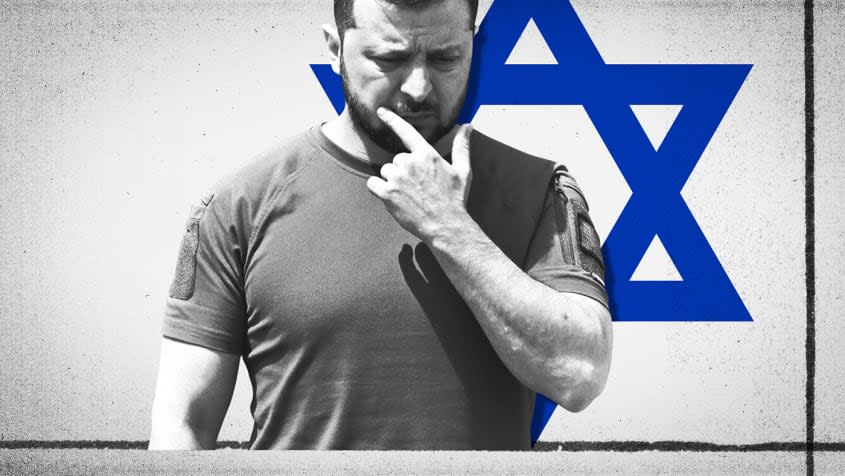Is the 'Israel model' right for Ukraine?

NATO won't be welcoming Ukraine as a new member — not, at least, as long as there is a war on. But that doesn't mean Kyiv will be left to its own devices. The Wall Street Journal reported that the U.S. and other Western countries are looking to the "Israel model" as a way to shore up Ukraine's defenses over the long term. "Israel isn't a member of NATO," but the country "has enjoyed a special relationship with the U.S." that has long made it flush with American aid and weaponry.
The Israel model would make Ukraine "strong enough to deter any future Russian adventurism" but still leave the United States room to avoid direct conflict with Russia, Duke University's Peter D. Feaver wrote at Foreign Policy. The option "maximizes the role the West has most enthusiastically embraced" — equipping and training Ukraine's forces — while minimizing the possibility that NATO forces could end up "fighting and dying" in Ukraine.
"Critically" the New York Times reported, the Israel model for Ukraine "would avoid a provision like NATO's Article 5, which declares that an attack against one member state is an attack against them all." The big question: Would Israel's example help Ukraine deter future Russian attacks?
What the commentators are saying
"It's a testament to Israel's success at defending itself that friends of Ukraine invoke it as a security model," Jason Willick wrote for the Washington Post. One advantage of the model for Ukraine is that America's non-treaty allies "have more freedom to make their own foreign-policy decisions." Israel, for example, has a history of "acting aggressively and unilaterally" against perceived threats. American leaders haven't always enjoyed that independence. If the West goes with the Israel model for Ukraine, it "should be clear-eyed about what it means."
Israel has one thing that Ukraine doesn't, Eliot Cohen wrote at The Atlantic: A nuclear arsenal. The U.S. shouldn't want Ukraine to go down the road of developing its own nuclear weapons. That would only invite more conflict: Russians might try to strike that program preemptively, and Ukraine in turn might be tempted to display its nuclear capabilities. "That is an outcome no one should want." President Biden should take the lead in welcoming Ukraine to NATO unless "he prefers to be the father of the Ukrainian atom bomb."
"Granting NATO membership to Ukraine is critical to ensuring it wins the war against Russia quickly and decisively," Ian Brzezinski wrote for the Atlantic Council. U.S. assistance to Israel "has been critical to Israel's survival" but "Israel's adversaries in the Islamic world are not major powers." That means Ukraine is far more vulnerable, and far more in need of the alliance's protection. The Israel model would leave Ukraine "indefinitely in the gray zone of insecurity."
"The Israel model is more viable than NATO membership, and may indeed be preferable to it," Emma Ashford and Kelly A. Grieco wrote for the Stimson Center. But that model might be no less threatening to Russia than NATO membership. And the example of Israel suggests using that example in Ukraine will come with "headaches" for U.S. policymakers. Even with the risks, the Israel model might be the "best of the bad options" going forward.
What's next
Ukrainian President Volodymyr Zelenskyy has made clear his desire for NATO membership, but NPR reported he didn't get that at the recent alliance summit. Instead, NATO is holding out the promise of future Ukrainian membership after the war is over. In the meantime, Zelenskyy received renewed pledges of Israel-like Western support. "The one thing Zelenskyy understands now is that whether or not he's in NATO now is not relevant, as long as he has the commitments," Biden said.
The Israel model may avoid committing the U.S. to a direct defense. But, as Feaver noted at Foreign Policy, it won't come cheap. (Assistance to Israel usually comes with a $2-4 billion annual price tag.) America will probably be entangled with Ukraine for a long time to come. Whether it chooses NATO membership or merely massive military aid, "the demands on the United States are considerable going forward."
You may also like
Florida construction and agricultural workforces diminished after new immigration law takes effect
Judge limits how Biden officials can communicate with social media companies
How solar and wind energy are saving Texans from a record heatwave
